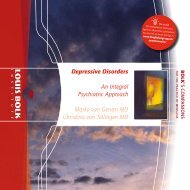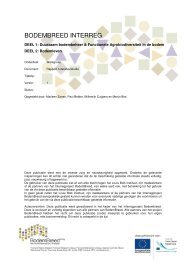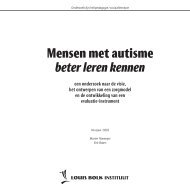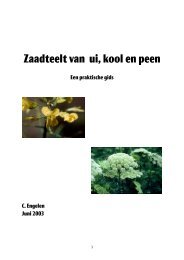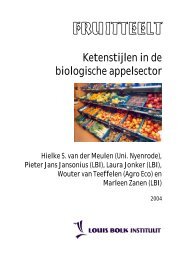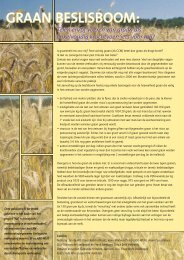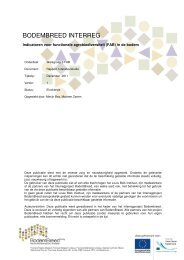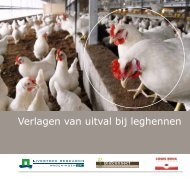Respiratory System Disorders and Therapy From a New - Louis Bolk ...
Respiratory System Disorders and Therapy From a New - Louis Bolk ...
Respiratory System Disorders and Therapy From a New - Louis Bolk ...
Create successful ePaper yourself
Turn your PDF publications into a flip-book with our unique Google optimized e-Paper software.
6.2.3. <strong>Therapy</strong> for the Decreased Reaction to Stimuli: Support<br />
Table 6.6. The reaction to different types of stimuli in pneumonia<br />
Reaction to<br />
stimuli<br />
Awareness Breathing Muscle tension Metabolic<br />
changes<br />
Need to rest Decreased Diminished Decreased<br />
reaction reaction to appetite<br />
to cough<br />
stimulus<br />
motor stimuli<br />
Therapeutic Goals<br />
a. Pneumonia patients sleep a great deal <strong>and</strong> express the need to rest. They have a lowered<br />
awareness. Sleeping helps to conserve energy to support the healthy progression of the<br />
healing process, as we have stated above (6.2.1a.). The patient’s need to rest must be<br />
sustained, because the organism needs all its energy to deal with the infection.<br />
b. Coughing in pneumonia must be supported to clear the airways, so that mucus does<br />
not irritate them <strong>and</strong> oxygenation improves.<br />
c. The decreased reaction to motor stimuli must be supported where movements are<br />
unnecessary. The energy must be conserved for the infectious inflammatory process.<br />
d. The decreased appetite is functional, because it matches the diminished activity of the<br />
digestive process in the intestines. <strong>Therapy</strong> objective is to ensure that the necessary<br />
intake of food can occur with as little loss of energy as possible.<br />
Treatment of the Decreased Reaction to Stimuli in Pneumonia<br />
a. The need to rest is supported by temporarily halting all unnecessary mental <strong>and</strong> motor<br />
activities <strong>and</strong> by sending the patient to bed in a quiet room with few sensory impressions.<br />
The patient must be supported during essential motor activities.<br />
The vulnerable consciousness can be supported by a refreshing nap <strong>and</strong> the appetite<br />
increases as metabolic processes that are temporarily active in the infection can once<br />
again return to the digestive system.



